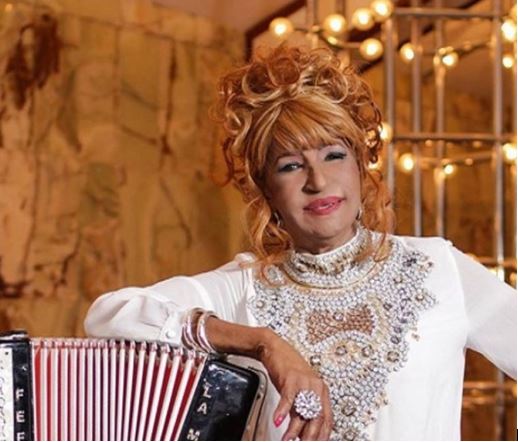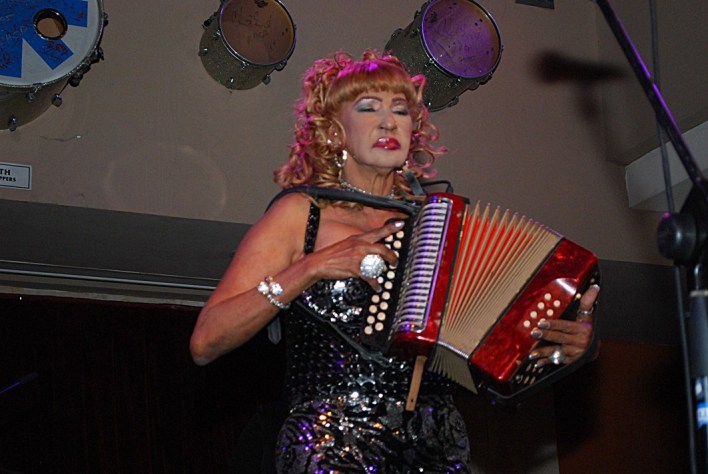Fefita La Grande
Manuela Josefa Cabrera Tavares (San José, Santiago Rodríguez, September 18, 19431), known as Fefita La Grande, is a Dominican accordionist and the most recognized female interpreter of the typical merengue, a more rural variation of merengue, the main musical genre of the Dominican Republic.1 She is one of the highest representatives of the "typical genre" along with artists such as Tatico Henríquez, Pedro Reynoso, El Ciego de Nagua, Francisco Peralta, Rafaelito Román, Francisco Ulloa, among others. Her version of the song "La chiflera" is an emblem of typical music. On May 31, 2016 she was distinguished with the Grand Sovereign of Sovereign Awards

He was born in San José, a small town in the Santiago Rodríguez province in the Dominican Republic. Daughter of Eliseo Cabrera (Seíto) and María Anna Taveras, from an early age she began to be interested in music by practicing playing the accordion in her father's workshop. She was motivated to play the accordion after listening to the songs of Guandulito, one of the pioneers of the typical merengue. At seven years of age she was already known in her community for her talent as an accordionist and at nine she was already entertaining parties with accordion, güira and tambora. In the mid-1950s, due to her talent and charisma, she was approached by José "Petán" Arismendy (brother of dictator Rafael Leónidas Trujillo) who, upon hearing her play, took a hundred pesos out of his pocket and gave them to Fefita, who had just twelve years old.

The name "La Vieja Fefa" was given to her by Tatico Henríquez when she was 17 years old and Bartolo Alvarado "El Ciego de Nagua" baptized her with the name of "Fefita La Grande" when she was already about 22 years old. Since 1980 she has called herself "La Mayimba", the name she likes the most. Years later she traveled abroad accompanying maestro Rafael Solano on one of her tours of Puerto Rico and later to other countries. She was the first Dominican artist to bring the typical merengue to Europe. At the same time, she began her recording career with her first LP "If you want to come, let her come", although by then Fefita had a wide musical repertoire and was widely accepted by the public. She has performed meringues by many authors, including her father Don Seito, as well as compositions whose melody and lyrics are of her own evolorship.